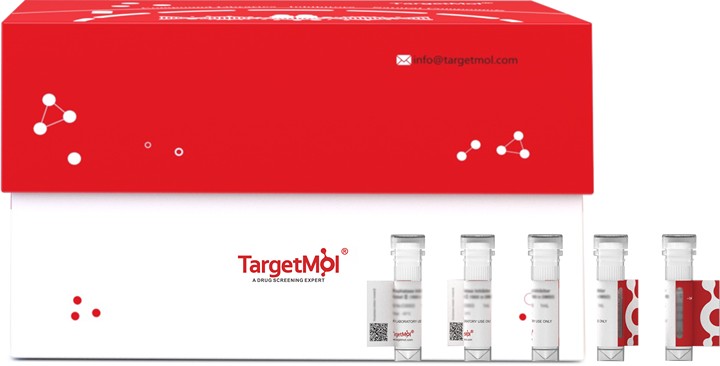Shopping Cart
Remove All Your shopping cart is currently empty
Your shopping cart is currently empty
IL-10 Protein, Rat, Recombinant (CHO) is expressed in CHO Cells. The accession number is P29456.

| Pack Size | Price | USA Warehouse | Global Warehouse | Quantity |
|---|---|---|---|---|
| 5 μg | $98 | - | In Stock | |
| 10 μg | $170 | - | In Stock | |
| 20 μg | $295 | - | In Stock | |
| 50 μg | $622 | - | In Stock | |
| 100 μg | $993 | - | In Stock | |
| 200 μg | $1,580 | 7-10 days | 7-10 days | |
| 500 μg | $2,960 | 7-10 days | 7-10 days | |
| 1 mg | $4,750 | 7-10 days | 7-10 days |
| Biological Activity | ED 50 < 8.0 μg /ml, measured in a bioassay using C6 cells. |
| Description | IL-10 Protein, Rat, Recombinant (CHO) is expressed in CHO Cells. The accession number is P29456. |
| Species | Rat |
| Expression System | CHO Cells |
| Tag | Tag Free |
| Accession Number | P29456 |
| Synonyms | TGIF,CSIF,B-TCGF |
| Construction | Ser19-Asn178 |
| Protein Purity | > 95% as determined by SDS-PAGE; > 95% as determined by HPLC |
| Molecular Weight | 8~22 kDa (Reducing conditions) |
| Endotoxin | < 0.2 EU/μg of protein as determined by the LAL method. |
| Formulation | Lyophilized from a 0.2 μm filtered solution in PBS. |
| Reconstitution | Reconstitute the lyophilized protein in sterile deionized water. The product concentration should not be less than 100 μg/ml. Before opening, centrifuge the tube to collect powder at the bottom. After adding the reconstitution buffer, avoid vortexing or pipetting for mixing. |
| Stability & Storage | Upon receiving, this product remains stable for up to 6 months at lower than -70°C. Upon reconstitution, the product should be stable for up to 1 week at 4°C or up to 3 months at -20°C. For long term storage it is recommended that a carrier protein (example 0.1% BSA) be added. Avoid repeated freeze-thaw cycles. |
| Shipping | In general, Lyophilized powders are shipping with blue ice. Solutions are shipping with dry ice. |
| Research Background | Interleukin-10 (IL-10), initially known as Cytokine Synthesis Inhibitory Factor (CSIF), belongs to the IL-10 family and shares more than 80% sequence homology with the Epstein-Barr Virus protein BCRFI. It is produced by many immune cells, such as T-cells, macrophages, mast cells and dendritic cells. It is usually secreted as a homodimer and, upon binding to its receptor, inhibits the synthesis of a number of cytokines, including IFN-gamma, IL-2, IL-3, TNF and GM-CSF produced by activated macrophages and Th2 cells. It also displays the ability to suppress Antigen-Presenting Cell (APC) function. The net effect of Interleukin-10 appears to be inhibitory; however, stimulatory effects, such as stimulation of B cell maturation and antibody production, are also reported. |
| Size | Quantity | Unit Price | Amount | Operation |
|---|

Copyright © 2015-2026 TargetMol Chemicals Inc. All Rights Reserved.